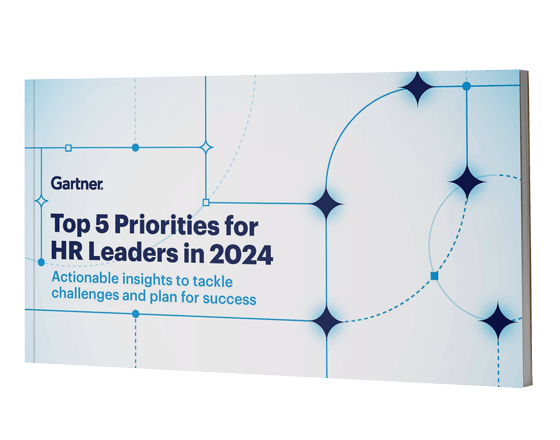Why is recruitment important?
The recruitment shake up has started, a change in the way we invest in and see our people, the roles they fill, and a change in the way their career paths are developed.
The idea that we find the right people for a specific role is wholly outdated – the boundary of a role needs to become much more fluid and individual specific. The use of the Curriculum Vitae is a hinderance to the success of organisations in their recruitment processes – there are also calls to ‘Ditch The CV” the backbone of recruitment for decades.
The world needs to move to a model where the right people for the collective success of the organisation are found based on their potential impact, contribution and relationships with others. These are all factors that the CV does not show case. Roles need to be created based on this impact and consider the relationships and engagement of others to that individual position.
To kick off our series of recruitment blogs we ask Jon Ray, Director at eg.1– Business Insight and Talent Consultancy, the question ‘Why is recruitment important?’.

On the topic of why recruitment is important, Jon Says:
“Recruitment is defined as ‘the action of finding new people to join an organization or support a cause’.
Leaders often talk about employees being the most important part of their business. This is true now more than ever. Employees represent the quality, culture and professionalism of a business.
Recruitment, especially at the more junior end, has started to become commoditised. Too many businesses focus purely on skill sets, role functions, and numbers rather than the impact and energy an individual can bring to their teams. If we were dealing with defined products or services, then this could be okay but people have a tendency to act on their own agenda and motivations. These motivations are often disregarded by both companies and applicants, but not always consciously, which can lead to longer term problems. An employee may have a great skill set and be very good at what they do but if they aren’t motivated by the work, then the chances are they will become disengaged and their effectiveness will dwindle.
A balanced and motivated workforce can only be achieved through an effective onboarding: the way people are attracted; dealt with during a recruitment process; the way they land in a business and how they are continually engaged. ‘Jobs for life’ are scarce with new opportunities more available than they have ever been – LinkedIn, Job Boards, companies advertising on their own websites, are just a few of the options that have given people the chance to titillate themselves with the ‘possible’ rather than having to deal with any challenges in their own firms.
I often hear about great employees leaving businesses, despite leadership thinking these people have internal support and a strong upward trajectory. During conversations with them, the common theme is that they feel disengaged from their own career, with employers forcing employees along a path based on what they have been trained in, and have become great at, rather than understanding what the employee would like to be doing.
Everyone wants to be excited by the impact they can make in a business. Why wouldn’t they? True impact is based upon natural energy and a relevant skill set. If someone doesn’t enjoy a job, then that energy soon dissipates and impact is lessened. In my opinion, it is much better to give people the skills and opportunity to do the things that they love rather than trying to instil enthusiasm via higher pay or promotions. Sooner or later, the latter option will lead to them choosing to go and do something they enjoy – all that investment just walks out of the door.
Diversity is imperative. Diversity doesn’t just mean gender, ethnicity or any other restricting definition. It’s about a diversity of thought and impact. Diversity enables insights, understandings and empathies that a non-diverse workplace just can’t comprehend. Only then can companies truly foster an environment that is likely to create opportunities, products and services that are more attractive to a wider spectrum of clients. Many highly credible reports have proven that true diversity makes organisations more effective, more profitable and more successful.
When I talk to businesses about their diversity challenges and the efforts they are making to hire diversely, the common trend is to limit the scope of a recruitment brief, rather than understanding and tailoring what can be done to make something attractive to an individual. People don’t want to feel that a company is hiring them, or promoting them, based on statistics rather than what they bring to the table. The disharmony this causes often results in an exodus of good people, further exacerbating the problems.
A good recruitment process shouldn’t just begin by looking outside. Attrition is expensive! The cost of attrition isn’t just about the cost of hiring someone new – it’s about the cost of lost investment, time and missed opportunity that a person exiting a business creates. Recruitment should be based on a constant understanding of the proclivities of individuals within a business and aligning the individuals with roles that engage them, wherever possible. This should result in a more enthusiastic workforce, more productive teams and lessen attrition. Once this has been done, then true gaps can be identified and more strategic hires considered.
This is when ‘recruitment’ really becomes important. Rather than trawling through the same pools of candidates that have been ‘over-fished’ for years, why not look at investing in real talent? My version of real talent is individuals that will enable a company to achieve its goals, whilst really enjoying the challenge and benefits that each success delivers. People that have ‘been there and done it’ are great and will always be needed. Equally, giving the right people the right challenge and empowering them to deliver against potential, by providing the right environment and training, will reap longer-term benefits.
Poor recruitment isn’t just the fault of clients. Recruitment businesses, head-hunters, executive search consultants and any other name that they wish to call themselves are also culpable for many an evil. Too many consultants are constantly being pushed to make numbers, hit KPIs, close the deal, make things happen etc. etc., but hardly any of them are given the opportunity to truly get to know the clients nor the people that they are representing, creating potential pitfalls and less than ideal behaviours. A good recruitment process should involve a real commitment from both client and consultant to work in real partnership. Ensure that the right candidate is presented with the right opportunity in a consistent, open and honest way. Is asking 10 companies to chase down people with only the ‘first past the post’ getting paid really the best way to improve things? My personal view is ‘No’. There are some great recruitment businesses out there with great people working within them, who work hard to deliver great results for their clients, but they are becoming more and more of a rarity.
If someone tells me they’re a Recruitment Consultant, the first thing I generally ask them is what they actually consult on. Most people are nothing more than recruitment salespeople and that’s where the industry has gone wrong. Good recruitment isn’t just a science. It’s also an ever-evolving art of finding the find the right people the right opportunity, at the right time in their career, to provide an ongoing challenge that will evolve as they do. Easy to talk about, much harder to do.”
Jon’s Bio:
Jon is currently a Director with eg.1 where he is tasked with leading the Financial Services offerings. He has worked in recruitment since 1996 and has enjoyed building a global network of contacts, focussing predominantly on Professional Services and Technology firms. Unlike many recruiters, Jon has worked both in-house and agency-side, across a blend of start-ups and tier 1 multinational firms. During his 23 years Jon has placed, and hired, all levels of candidates from graduate/associate through to senior Partners and regional leads. The perception of the recruitment industry has always bothered him.
eg.1 – GC Partner & Business Insight & Talent Consultancy:
eg.1 understands the importance of recruitment and works with clients to secure talent that will make a transformational difference to their business. This is delivered through a proven process that combines thorough competitive and market intelligence, with a candidate engagement and selection process that is linked directly to real and potential impact.
With more than a decade of experience enabling organisations to build game changing capability eg.1 do this through the combined acquisition of people, teams and companies and by leveraging our proven delivery process and strategy enhancing data.
The GC Index is embedded the eg.1 search Process to provide all candidates, hiring managers and key stakeholders with a common language of impact and contribution to help align all expectations and mitigate any risks in the hiring process.
To find out more about eg.1 and how they use The GC Index check out their GC Partner page: Here



